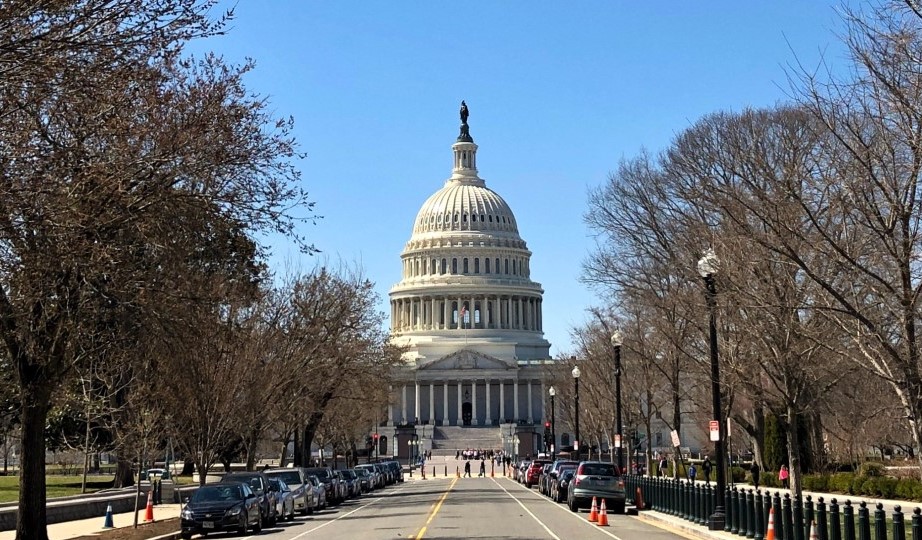
Little is more frustrating to a contractor than having an owner acknowledge the validity of a claim during the project, only to later change its mind. Contractors rely on these statements not only for how they approach their administration of the project but also for how they present their claims to a court or arbitration panel, if necessary. This is particularly true if someone in authority on behalf of the owner, like a government contracting officer, is the one making the acknowledgment. This issue’s case, Cherokee General Corp. v. United States, explains how the U.S. Court of Federal Claims recently considered this situation in the context of a differing site condition claim.
The Case
In August 2016, the U.S. Army Corps of Engineers issued a request for proposals from contractors to repair and improve a military airstrip at the Selah Airfield at the Yakima Training Center in Washington state. Six weeks after the release of the RFP, the Corps issued CGC a $7.2-million, fixed-price task order for the work. The task order was awarded under a multiple award task order contract between the parties. The task order required the task to be completed in 240 calendar days, by May 27, 2017.
Once work began, the project experienced numerous delays. The parties disagreed about who was responsible for the delays as well as whether some of the work the Corps directed CGC to perform was required by the task order contract or was additional work that should have been the subject of change orders. While the parties were at odds about the extent to which various delays affected the critical path of performance, the Corps did issue a change order that extended the contract completion date by 49 days, to July 15, 2017.
By mid-May 2017, the Corps concluded that CGC would not be able to complete the runway on deadline and therefore in time for an event called the Mobility Guardian exercise, which was a high-profile, combat-readiness exercise scheduled for summer 2017. The Corps’ contracting officer issued a “show cause” notice to CGC on June 8, 2017. After considering CGC’s response, the contracting officer terminated the contract for default.
CGC argued that the default termination was improper and filed a claim seeking payment for work performed along with damages, amounting to more than $4 million. CGC alleged that, among other things, the project delays were excusable because they resulted from design changes imposed by the Corps, differing site conditions, and other circumstances not within CGC’s control. CGC ultimately filed a lawsuit in the Court of Federal Claims asking that the court convert the termination for default to a termination for convenience and that CGC be awarded damages for its claims.
The Corps counterclaimed for almost $7.5 million, which included more than $3.4 million attributable to hiring a replacement contractor, more than $3.2 million for repairs to the project site allegedly necessitated by CGC’s over-excavation and placement of improper fill material in certain areas, and more than $600,000 in liquidated damages based on 435 days of delay in the completion of the contract.
The Decision
The court’s decision was based on several motions for summary judgment filed by the Corps to dismiss CGC’s claims. One motion related to CGC’s differing site condition claim, in which CGC alleged that the presence of wet soils at the site constituted either a Type I or Type II DSC. The Corps moved to dismiss this claim because CGC failed to provide any evidence that could establish the elements of either type of DSC.
With regard to the Type I DSC, the court noted that CGC had to establish, at a minimum, that a reasonable contractor reading the contract documents as a whole would interpret them as making a representation as to the site conditions. In addition, the court cited longstanding precedent that the contractual representation had to affirmatively represent a condition (for example, that only hard material would be encountered). The court found that CGC failed to identify any affirmative representation in the contract documents regarding the condition of the soils at the airstrip. To the contrary, the court found that the contract explicitly “placed the onus on CGC to determine the condition of the site itself, by conducting its own geotechnical investigation and preparing its own report.”
As for the Type II DSC, the court noted that CGC was required to demonstrate that there existed unknown physical conditions at the site of an unusual nature, which “differ materially from those ordinarily encountered and generally recognized as inhering in work of the character provided for in the contract.” The court found that CGC failed to meet such requirements. CGC presented no evidence that it could not have reasonably anticipated that there would be a significant quantity of wet soils at the site shortly after the winter season or that the conditions of the soil differed materially from what would ordinarily be encountered and generally recognized when undertaking similar work in the region.
The court found that CGC’s DSC claim appeared to be based entirely on a sentence in the contracting officer’s “show cause” notice stating that “the Government recognizes [the drainage system, material quantity overruns, and saturated soils] as either changes to the Contract or differing site conditions.” The court found CGC’s reliance on this “conclusory observation” to be unavailing:
“Even where a contracting officer’s legal opinion is fully explained (unlike here), it is not binding on the government in judicial proceedings (which are de novo) and it cannot override the language of the contract itself.”
As a result of the above, the court granted the Corps’ motion for summary judgment of CGC’s DSC claim. This meant, among other things, that CGC could not use the alleged DSC as a basis for claiming a time extension, which would have helped it defeat the default termination.
The Corps raised other arguments on summary judgment, including that at the time of termination it was not reasonably likely that CGC could have completed its work on the contract within the time remaining and that CGC committed “material breaches of the contract specifications justifying the default termination.” These breaches included over-excavating and backfilling with noncompliant material, the Corps argued. The court declined to decide these issues on summary judgment, finding that there were facts in dispute and that all these issues were intertwined with issues that were associated with determining whether CGC’s delays were excusable.
The Analysis
It is obvious that the disputes in this case involve much more than a DSC claim. However, the fact that the court was willing to dismiss the DSC claim could have a major impact on CGC’s ability to overturn the default. The decision did not explain how many days of delay were tied to the soils issues, but given the court’s decision, CGC is certainly in a more precarious position than it would have been had the issue remained alive for the full trial. We found it surprising that this was resolved on summary judgment, as one would have thought it important to understand why the Corps’ contracting officer thought this was recoverable under the contract.
One other observation: The damages sought by the Corps are almost double the amount of CGC’s original contract price, with the excess reprocurement costs being almost as much as that original price. While the validity of the default termination and resulting costs will be the subject of a trial and later opinion, it is a stark reminder to contractors of the potential liability from not finishing a contract. To defend itself against these damages, CGC will have to prove its entitlement to a time extension by demonstrating that it gave appropriate contractual notice and offering project records to support its position. Stay tuned to future columns to learn the results of the trial.
This article first appeared in the March/April 2021 issue of Civil Engineering as "Owner Acknowledgment of Site Conditions Doesn’t Help Contractor."





